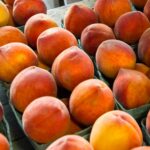AUS: Govt to penalize welfare recipients who turn down harvest work

The Australian government has announced that it will refuse Centrelink payments (the nation's welfare assistance) to people who are currently unemployed but refuse to do short-term harvest work, says The West Australian.
What's more, it plans to step up penalties for those who can't provide a suitable excuse for doing so.
In extreme cases, the government says it might withhold a welfare recipient's dole money for four weeks.
The action is part of a national push to help farmers prepare for the upcoming harvest season, comments the publication.
If this crackdown fails to attract enough workers, the country's Prime Minister Scott Morrison says he will consider other options. These would include changing policies on working holiday visas. In this way, he would aim to increase the number of visitors and available farm workers.
Additionally, we are considering making changes to our Pacific Island worker program; we might also revise the rules of our migration program so that we can get the job done, he adds.
“Where we cannot find Australians to do the work, we cannot allow the fruit to rot.”
Sustaining regional economies
The Prime Minister says he decided to take action against welfare recipients to address farmers' complaints about labor shortages.
“Our government has heard from farmers ... about how tough it is now to find workers, particularly at the height of harvest season for some crops. We want to highlight exactly where the jobs are and make sure jobseekers know where to be looking.
“While we’re tackling the labor shortage this also ensures jobseekers on taxpayer support have no excuse to refuse opportunities.”
Morrison has asked farmers to register the positions they need workers to fill, along with how much they pay, so that the National Harvest Labor Information Service can match them with workers.
Deputy Prime Minister and Nationals leader Michael McCormack emphasizes the plan is a key part of sustaining regional economies.
“This will help to ensure our farmers and agribusinesses can continue growing and supplying the world’s best food and fiber, to boost and sustain regional economies,” the publication quotes him saying.













































